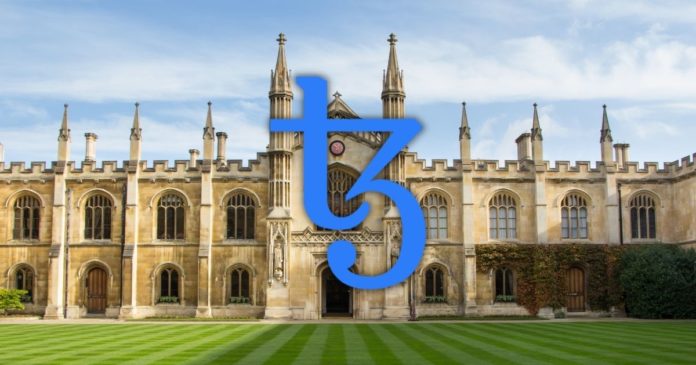The blockchain and cryptocurrency space in recent times have shown immense interest in facilitating environmental sustainability.
A recent partnership between Cambridge University and Tezos blockchain has further helped to portray the decentralized tech space’s interest in facilitating sustainability. At the recently concluded COP26 conference in Glasgow, over 100 world leaders agreed to focus on ending deforestation by 2030.
To achieve this, Cambridge University revealed plans to create a blockchain-based carbon credit marketplace. The marketplace will help measure and facilitate the trading of carbon credits. This, however, cannot be possible without the support of a reliable blockchain technology platform. In line with this, Cambridge University enlisted the support of the Tezos blockchain platform. Tezos blockchain was chosen for a number of reasons. Its generally low fees and also its low carbon footprint are some of the reasons why it was chosen.
Challenges Facing Cambridge 4C
Cambridge is interested in ending global deforestation by the year 2030. However, achieving this goal comes with several daunting challenges.
To overcome these challenges, Cambridge has launched The Cambridge Centre for Carbon Credits (4C). The Centre will be in charge of launching a carbon credit marketplace. This, in turn, will help to facilitate global reforestation. Therefore, bringing Cambridge closer to its goal of ending global deforestation by 2030.
The marketplace will be built using the Tezos blockchain. Also, it will involve a combination of both Artificial Intelligence (AI) and satellite sensing. The platform will also help offer solutions to the myriad of issues surrounding the trading of carbon credits. Additionally, the Cambridge Centre will link up both computer and conservation scientists. Together, they will create a blockchain-based marketplace for carbon credits. Which, in turn, will help support reforestation. Thus, reducing reducing deforestation in the process.
More on Cambridge Centre for Carbon Credits (4C)
Cambridge (4C) was established in both the Department of Computer Science and Tech and the Conservation Research Institute. The Centre is tasked with supporting students in various areas of computer science, environmental science, and economics. And also the creation of the carbon credit marketplace. The marketplace will also facilitate an increase in the number of nature-based solutions (Nbs) for conservation projects. NbS, in general, also suffer from gross underfunding. This issue can be fixed using funds gotten from the sale of carbon credits.
The Director of 4C, Dr. Anil Madhavapeddy, spoke in-depth about the Centre’s goal. He revealed that current carbon credit accreditation systems are “[…] costly, slow and inaccurate.” Adding that “These systems have undermined trust in NbS carbon credits. What is needed is a decentralized marketplace where purchasers of carbon credits can confidently and directly fund trusted nature-based projects. And that’s the gap the Centre is aiming to fill.”
According to the official press release, 4C will house at least 12 Ph.D. students and postdoctoral fellows. Researchers will also be recruited from several departments. Such departments include the Deptartment of Computer Science and Tech, Zoology, Plant Sciences, etc.
More on Tezos
Tezos is a self-upgrading, roof-of-stake (PoS) blockchain platform. It is also known for its interoperability and the ability to seamlessly adopt new innovations.
XTZ Price
At the time of publication, XTZ was trading at $5.92, with a market cap of $5,132,999,322 and a 24-hour trading volume of $176,873,701. XTZ price is also up by 3.6% in the last 24 hours.
Also, join us on Telegram to receive free trading signals.
Find out more about the blockchain and crypto space on the Altcoin Buzz YouTube channel.




























